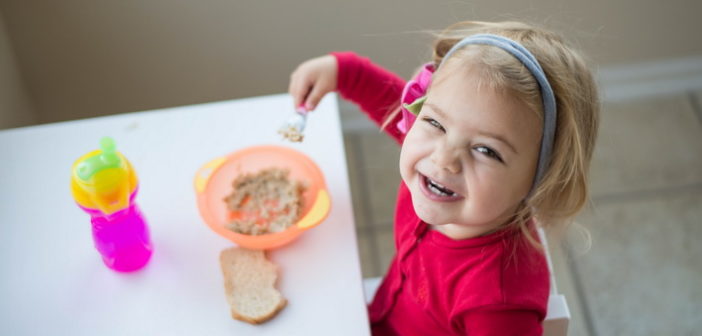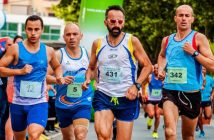Newcomers to Beijing will soon hear a common encouragement, in response to any ailment or complaint: “Drink warm water!” They might also hear that cold foods make stomachs sick. Or they might feel awkward the first time someone insists guests wear slippers for the sake of their health. All of these cultural exchanges can be traced to beliefs founded in Traditional Chinese Medicine (TCM).
For some expats, it might come as a surprise that traditional medicine is still practiced alongside Western scientific approaches, but to understand the rich history of Chinese culture, TCM is an important topic to examine.
The main difference between the two schools of thought can be illustrated by an analogy used by Dai Jie, a TCM practitioner who currently offers a new kind of TCM using painless electronic pulses. She makes house visits and plans to open several clinics throughout the city. Dai lives in Sanlitun with her French husband, Frederic, and son Roland, age 6.
“With Western medicine, doctors look at the fish for answers of what’s wrong with the fish, and prescribe medicine for the symptoms.” Dai contrasts this with Eastern medicine: “In Traditional Chinese Medicine, we look at the whole fish bowl, we check the water; we check the filter. We look at the whole tank rather than just the fish.” When considering the needs of a patient, Dai explains, TCM considers every single aspect in a patient’s environment, from the weather to their spiritual state.
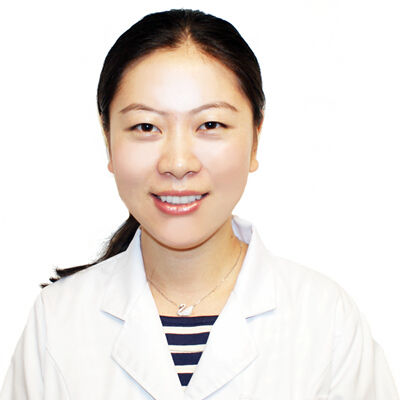
An Individualized and Balanced Diet
Dr. Marry Ma, a TCM practitioner at OASIS International Hospital who graduated from Nanjing University, says TCM has a long history with “basic theory, diagnostics, medicine, acupuncture, massage, and health rehabilitation.” Although TCM is dynamic and holistic in approach, a major aspect of is nutrition.
Dr. Ma specializes in treating issues such as infertility and female menstruation disorders, where her approach to nutrition is for each diet to have every nutritious element for individualized needs. “I make sure the food properties and the body constitution reach an equilibrium state.” She also uses food to correct imbalance or stop the body from escalating to a more severe imbalanced situation. (In TCM, a balance in each person’s yin and yang, in their blood and their vital energy or qi, are important for maintaining body harmony.)
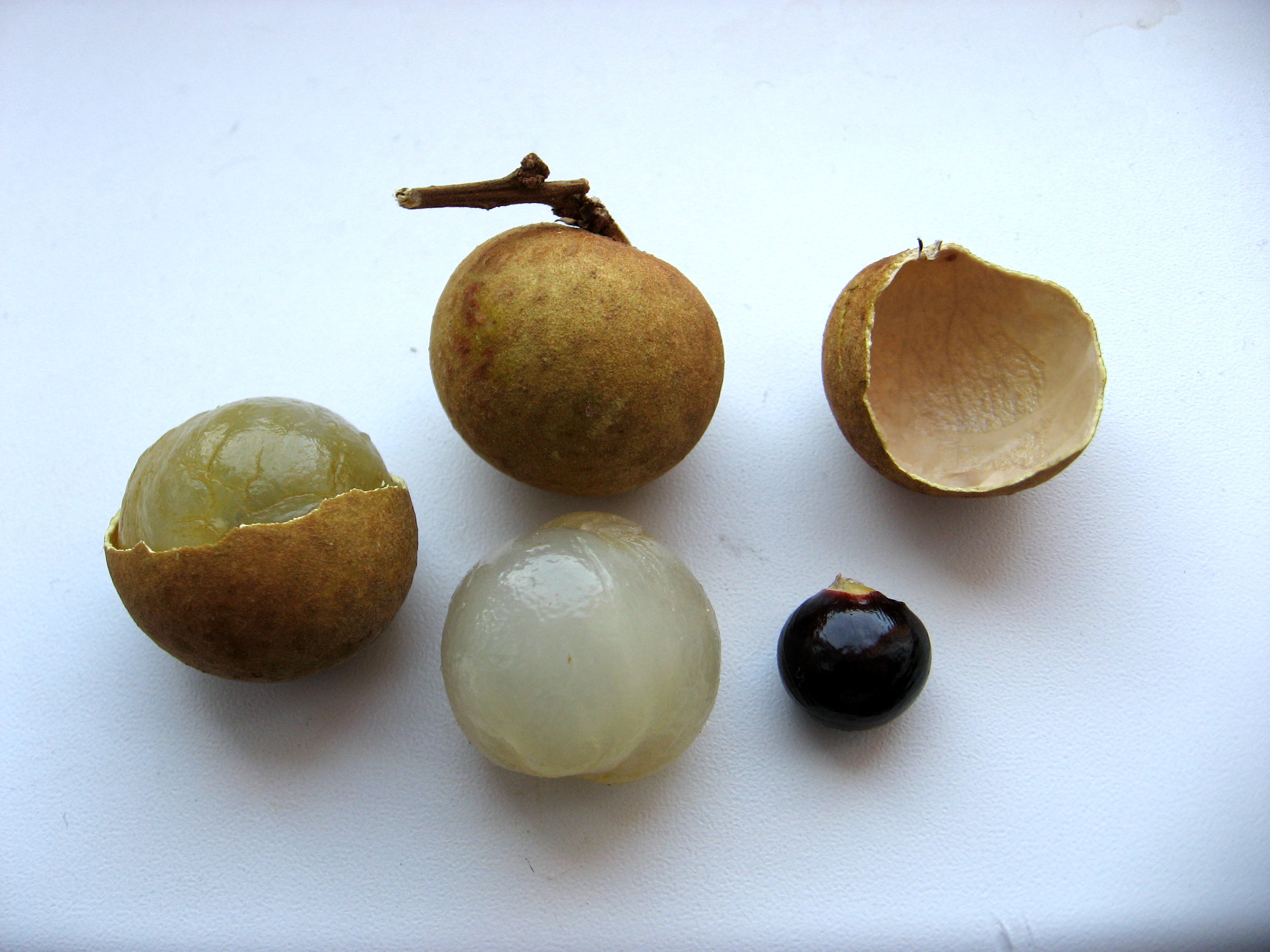
Food Properties
While the western diet focuses solely on nutrients and caloric intake, TCM considers the four main properties of food, (cold, hot, warm, and cool), in relation to each individual’s body constitution. Roughly, “warm” nature foods take longer to grow while “cold” nature foods require less time to grow.
“In thinking of foods, consider energy. Potatoes have been declared by the media as having too much starch and calories, therefore they’re bad. But the whole potato has synthesized nutrients and energy from the sun and soil,” Dai explains. In comparison, “the energy in animal meat is indirect.”
In Western medicine, dietary guidelines are given across the board (caloric needs are based loosely on weight, height, and age), but TCM considers constitution along with weather conditions, location, and season.
“In winter, people can eat more lamb which has a warm property, while in summer they can prefer watermelon, in the cold property. And those who tend to have poor circulation leading to cold hands and feet are encouraged to eat foods with a warm classification, like ginger.”
“Don’t consume what you don’t need, and don’t just listen to what the media recommends you eat,” Dai states. She emphasizes that information is key and so is listening to one’s body. “If you feel depleted of energy after eating rice, because it has a lot of yin, you should eat rice with water or limit it.” Dai gives her husband as an example: “He feels great after eating rice and drinking green tea, while I feel zapped.”
Food is For the Stomach and Spleen, Qi and Blood
At all times, make sure nutrition is sufficient, and then reinforce the spleen-stomach system. “The spleen-stomach is a very important pair in the system.” The reason is that qi and blood are basic elements, and in children, these elements are what support their growth, carrying nutrition to every part of their body. “The spleen can transform nutritious elements for nourishing the other organs.”
Qi and blood are also vitally important to a woman’s health cycle as they are used to support the fetus in pregnancy, and lost during menstruation and labor.

Special Considerations During Pregnancy
Dr. Yun Song of Sanfine International Hospital comments on the importance of health during pregnancy, and says that there are many options for the mom-to-be to “nurture herself and feel replenished.” Throughout the whole pregnancy, a balanced diet is incredibly important. For the first trimester “avoid raw foods and opt for well-cooked foods with milder flavor,” Dr. Song said, who has practiced in the healthcare field for over thirty years in China and abroad after graduating from Beijing University of Chinese Medicine in 1983. Check the recipe boxes for his morning sickness remedies.
More diverse food groups are allowed in both the second and third trimester, but Dr. Song cautions, “never eat until you are too full, and remember to consume enough fresh fruits and vegetables to avoid constipation issues.”
Although during the third trimester most women experience an increase in appetite, “to ensure that you are getting a sufficient amount of proteins, minerals and vitamins, you may consume milk, eggs, liver, fish, bean products, fresh vegetables and fruits,” Dr. Song says. He adds that these foods prevent complications such as anemia during pregnancy and delivery. “Avoid salty foods and drink plenty of water to keep problems such as hypertension at bay. Additionally, avoid high-calorie foods as they increase the risk of obesity.”
Controversy and Myths
Long time Beijing expat and mother of one Sharee Hebert (US) isn’t comfortable with TCM. Her reasons include a lack of scientific evidence, and too many people practicing TCM without official qualifications. “There was just a case in Shanghai where a man continued to have the fire cups on his back despite massive infections, which a trained doctor would have recognized and treated,” she states. She goes on to explain her own personal experience with TCM: “When I had my C-section, they were reluctant to give me pain medicine yet left my epidural line in my back for days so I could have TCM. They told me it was pain medicine but it did little to alleviate it.”
On the other hand, some who were skeptical have warmed up. Elizabeth F., from the US and mother of a one year old boy, has lived in Beijing for a year, “I started to drink warm water during my period and my cramps have gotten lighter. I also used to have leg pain during my cycle, but now the pain is gone.”
TCM believes women have too much yin during the menstruation cycle, leading to cramps, cold hands and feet, and shivering. “During this period, if women eat a great deal of ice cream, it can aggravate the symptoms. Additional cold property foods may shrink the vessels and make the blood flow slower and possibly cause blood clotting before being expelled,” Dr. Ma explains.
Additionally, not everything that is said to be TCM actually qualifies. We propose a situation to Dai: if a Chinese friend or roommate insists on keeping the windows open on a polluted day because fresh air is good for the body, is this considered TCM? “No that’s just ignorant,” Dai responds firmly. “There are several times where I’ve heard others say some sort of practice is TCM, when in fact, it’s not.”
Dr. Ma’s Dietary Tips
Dr. Ma’s general tips for supporting qi and blood should be considered with an individualized nutrition plan.
For Newborns: Sufficient breastfeeding is heavily affected by the health and diet of the mom.
For Children: Chinese yam and lotus seeds
For Pregnant Women: Chinese date, longan, sesame, and walnut
For Post-partum Women during Yuezi:
(A yuezi is a 30 day period of rest following birth.) Getting plenty of liquid is important, as during the birthing process women sweat and lose a large amount of body fluids. Milk production also requires a great deal of liquid. Therefore, consume soups. “Low fat, high protein soups are best.”
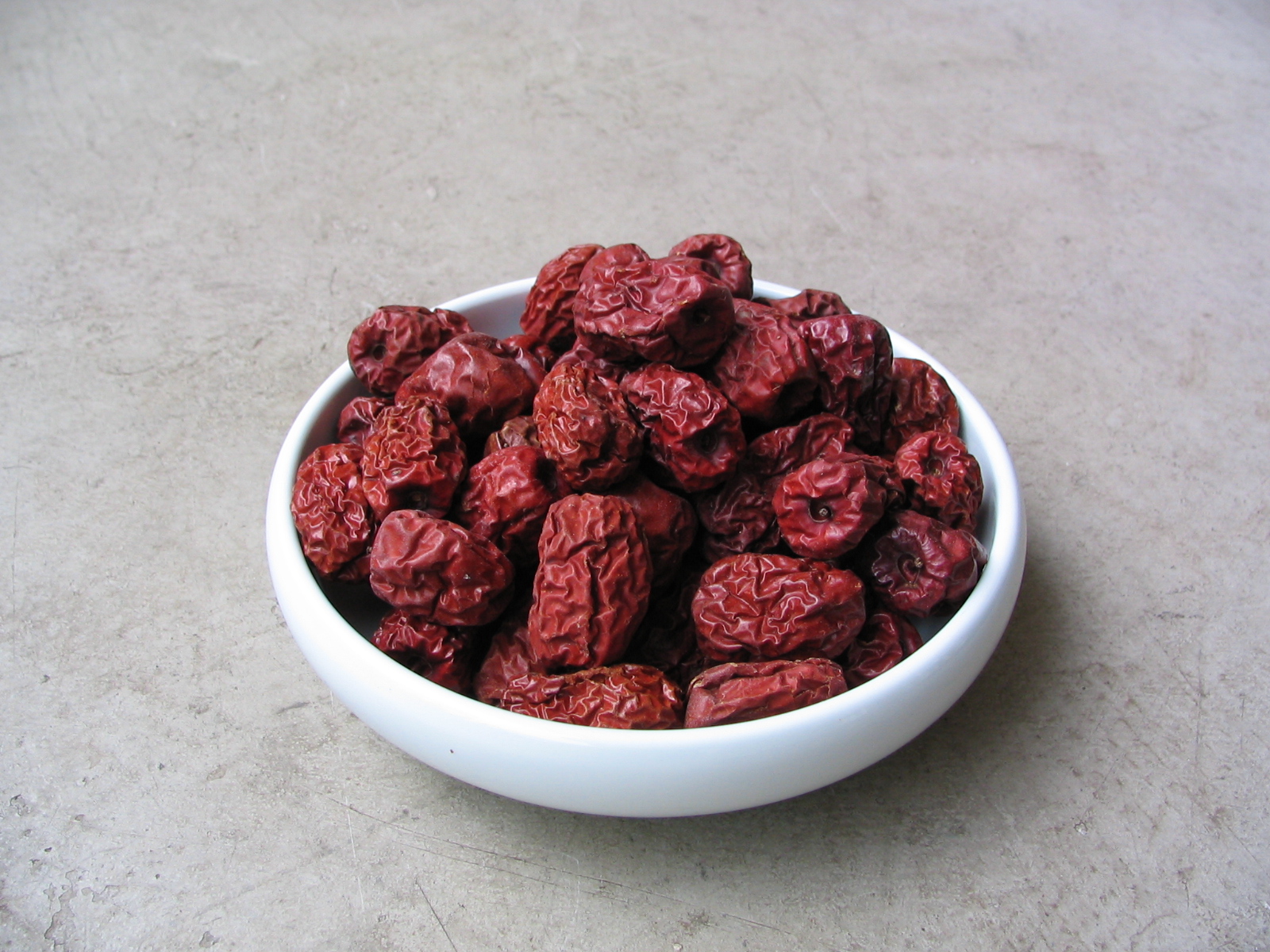
For Women:
“Since women fall more in yin compared to men, women can tone qi and blood with foods like longan and Chinese dates, and nourish yin with herbs called birds’ nest, lily bulb, and tremella. Avoid cold foods, like too much ice tea, ice cream, watermelon, soda, and carbs. Or cook cold food with warm property foods, like crab with ginger or yellow wine, to balance the cold foods.”
For Men:
Eat more goji berry and sea cucumber, which can help tone the liver and kidney. “The liver and kidney are good for bone, tendons, and the reproductive system. Avoid alcohol, caffeine, and garlic, which are not good for semen production.”
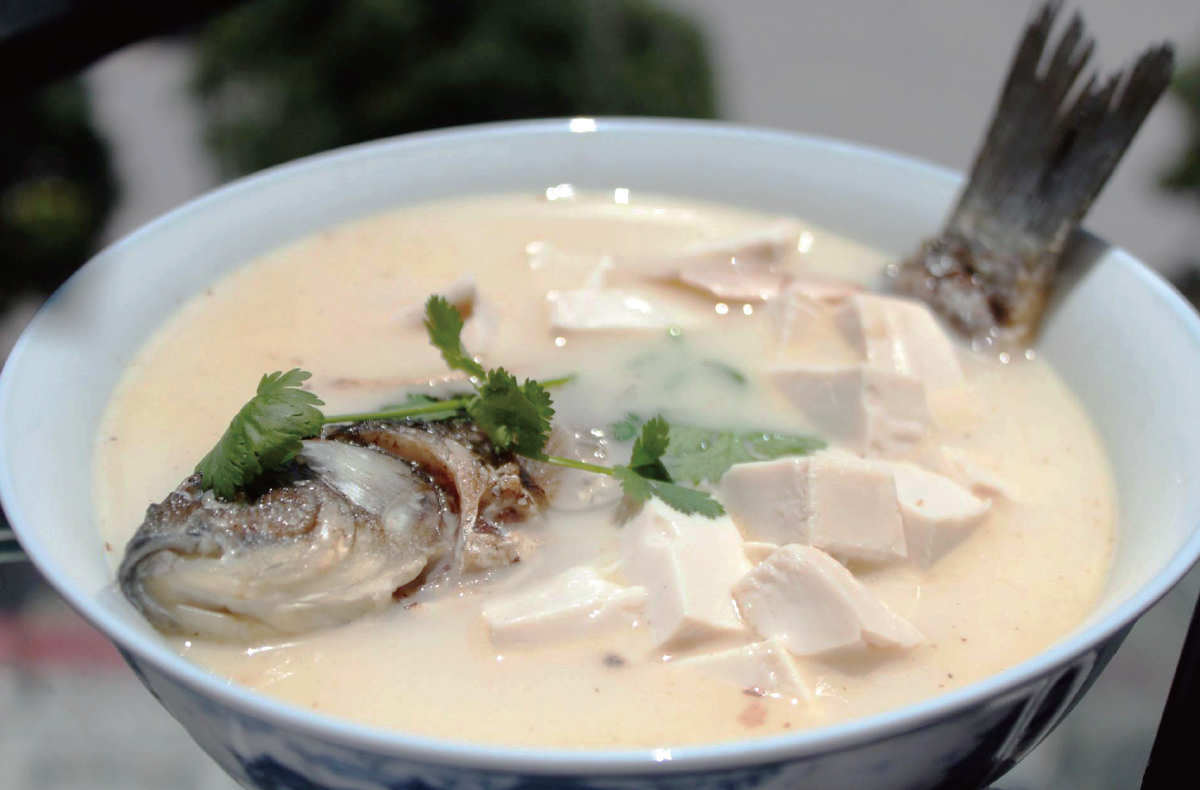
Better Breastmilk Production
Dr. Ma’s Crucian Carp Fish and Tofu Soup
Ingredients:
1 Crucian Carp Fish
250g Tofu
Shallot
Ginger
Mulled Rice Wine
Salt (to taste)
Instructions:
1. Clean the scales and the inside of the fish (use the mulled red wine to clean)
2. Heat 1-2 tablespoons of oil in a wok: add ginger and then fish. Cook until the fish becomes golden on both sides (careful to not burn).
3. Add water to cover the fish, increase heat until boiling. Add tofu and simmer for 30 minutes.
4. Turn off heat and add salt to taste. Sprinkle spring onions or chives over each serving.
Treating Mastitis by Dr. Ma
Drink and Apply: Dandelion Tea (蒲公英) púgōngyīng
Boil 30g of dry dandelion twice in two 150ml water portions. Filter out dandelion and drink the tea. Drink in the morning and the night. Fresh dandelion can be mashed and applied to swollen areas.
Apply: Glauber’s Salt (芒硝) mángxiāo
Using a bit of water, make a paste with 500g of fine Glauber’s salt (mirabilite). Place the paste in a gauze wrap or bag and apply to the swollen areas. Apply it repeatedly and continue to make the paste until the salt melts down.
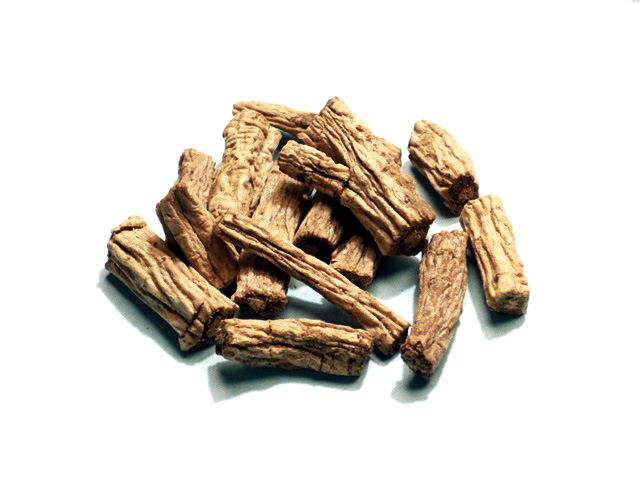
Dr. Song’s Morning Sickness Remedies
1. 10ml of ginger juice added to 120ml of sugar cane juice
2. 10ml of lemon juice plus 1 tsp. honey plus 100ml of water
3. 100g portion of sweet pomelo
Dr. Song’s Second Trimester Recipes
1. Cook 100g of black beans and 10 red dates into a rib soup. This will help nourish the blood and enrich yin.
2. Drink a herbal tea that’s made using 30g of dangshen (root of the hairy Asia Bell), 10g of Longan Rou (Arillus Longanae), 10 red dates and water. This will help nourish the qi-blood (气血).
3. Add 10g of Xi Yangshen (American ginseng) and 20g of black fungus to 250g of braised lean meat. This will help with replenishing qi, yin, and to increase energy.
Dr.Song’s Third Trimester Recipes
Consuming the following soups and stews can be beneficial:
1.Stew water with 30g of white fungus, 20g of Longan Rou (Arillus longanae) and 200g of shan yao (Chinese yam).
2.Stew 10 Red dates with birds nest soup and add a drizzle of honey.
This article originally appeared on page 42-45 of the August 2016 Issue of beijingkids magazine. Click here for your free online copy. To find out how you can obtain a hard copy, contact distribution@truerun.com.
Photos: Courtesy of Oasis, Sanfine, Wikimedia Commons, & Donnie Ray Jones (Flickr)

